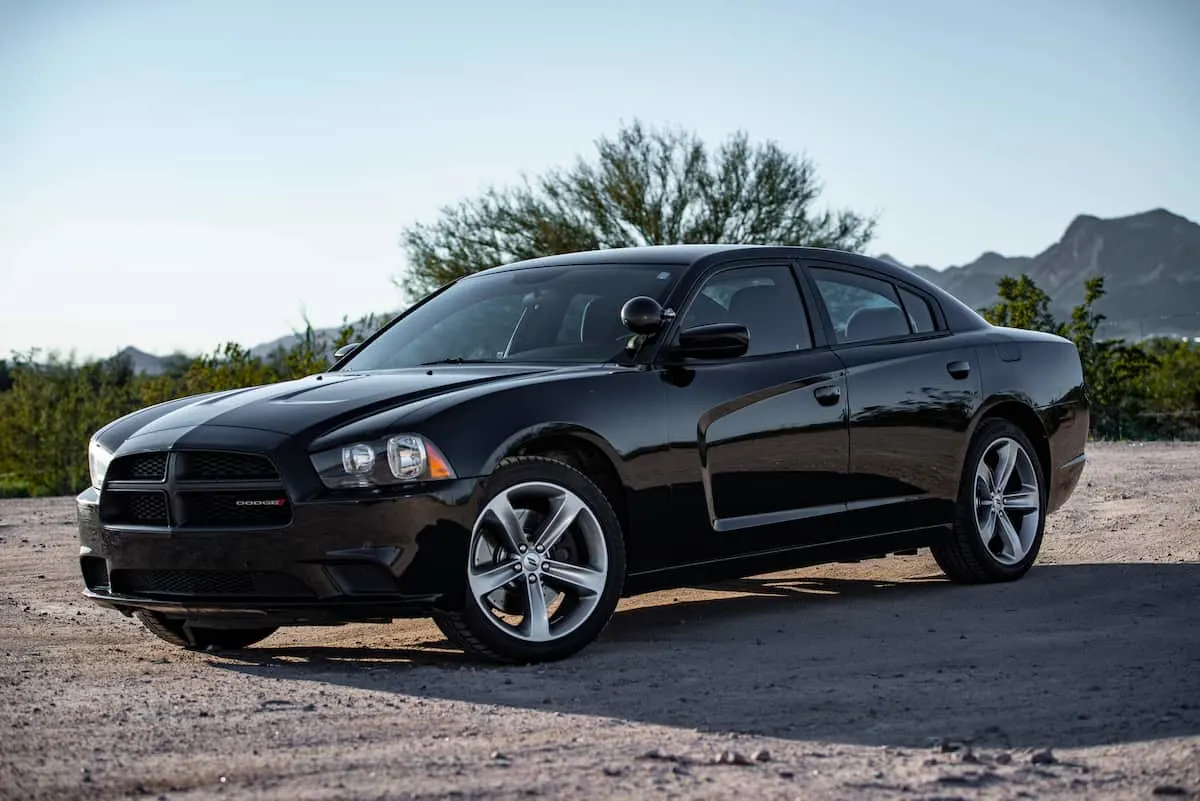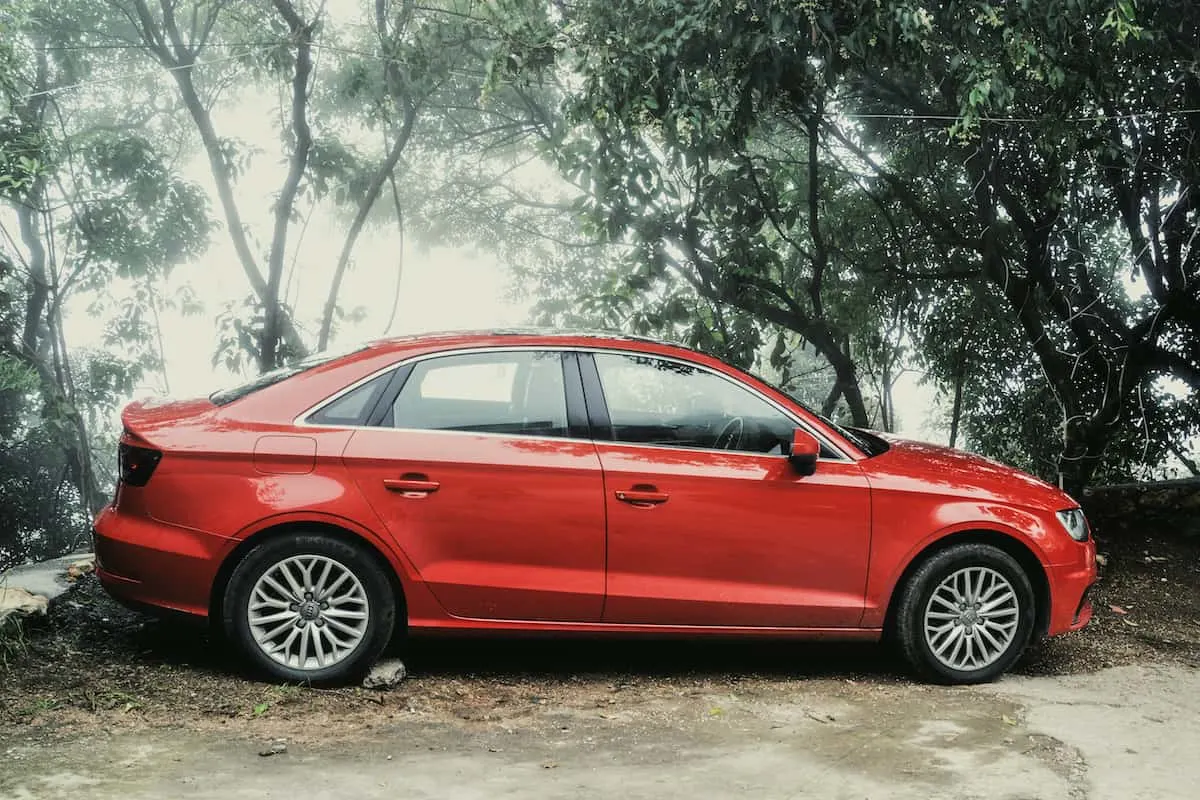If you ever wondered how much your car weighs, you are not alone. Read this article about how much most cars on the market weigh today to see how well your car holds up against others.
The average modern car weighs approximately 3,000 pounds. Interestingly, this is approximately 200 pounds heavier than previous average car weights due to the addition of new safety and other technology features. The weight of your specific car will also vary by model, year, and edition.
Want to see what factors contribute to the weight of a car and why new cars are heavier? Then keep reading and get to know all the facts about how much a car weighs and what to consider!
How Much Does a Car Weigh on Average?
As mentioned above, the average new car weighs about 3,000 pounds, but this is just a starting point. There are many different factors to consider when trying to find out the average weight of a vehicle.
The weight of a four-door sedan will be more than a compact car, and the difference between models can be different as well. Even different models of the same vehicle can vary because of different add-ons that are optional on the vehicle.
The year that the vehicle was made will also play a part in the weight on the vehicle because of how certain car parts were made and what was needed in the car. With additional features and a more durable build of certain car parts, the weight will be slighter heavier if it is newer.
The manufacturer of the model will also make a big difference in the weight of your vehicle. For example, many cars made in America are heavier than those manufactured in Europe.
Keep in mind that because many American cars are larger than those found in Europe, leading to an overall heavier vehicle. European cars are often more compact and made to navigate through the smaller streets of Europe.
Although the average is just a median number for all cars, your specific vehicle may not be that close to this number!

Is 3,000 pounds Heavy for a Car?
The average of older cars is a bit lower than newer models, so although the old average weight for a car was closer to 2,800 pounds, the new average is higher.
So, is 3,000 pounds heavy for a car?
Well, because the new average weight for a car is actually just over 3,000 pounds, that is pretty average. In fact, because the average is a bit over that, it might be slightly lighter than many other models!
If you were thinking that your car weighing three tons sounds like it a heavier model, you don’t have to worry, because it is actually in the average range.
Because of the durable and sturdier frames in newer car models, plus the addition of new safety features like more airbags, it makes sense that your newer car would weigh more than the old average.
Plus, there is a recent trend of making cars a bit bigger for better use of cargo space and comfortable passenger seating. So, you are not just getting a heavier vehicle, but all of the features of space and safety that come with it.
However, some sedans might weigh more than the average weight because of their larger size. Some sedans have larger trunks that are made to hold more cargo, and this added space makes the frame and body of the car weigh more.
So, depending on what model you have, the weight will vary greatly.

Are Cars Heavier Today?
Though this was touched on earlier, we will discuss this a bit more in-depth because there are many different factors that make the weight of a car change.
However, to answer the question; yes, cars made today are heavier than before.
With all of our modern technology, this will probably get your gears churning to wonder why exactly this might be the case.
Let’s look into some of these reasons now!
1. Safety Features
Well, one of the main reasons why cars made today is heavier than older models is because the addition of multiple safety features has added more weight. Many cars now come with a stronger and more durable frame that will better protect you from being injured in an accident, and they also come with more airbags.
Even the necessary addition of seat belts to all seats can add a bit of extra weight to a car. Some also might have a few other additions that affect the weight of the car.
Older cars, those made before 1968, were not required to have seat belts in them. However, cars manufactured after that day had to follow Federal Law requiring it.
This is one addition that makes a difference in weight due to the mechanisms needed for them to move and adjust.
2. Engine Power
Because of the fact that newer cars come with these extra safety features that make the car heavier, the engines have had to be built bigger and more powerful.
This further adds to the overall weight of the car!
Older engines didn’t have the power that cars come with today and they didn’t come with the same horsepower. As cars grew in size and more additions were required in the average car, the engines had to keep up.
However, there is also a push with car manufacturers to make vehicles that are faster than the previous models. This is why many of the most powerful cars that come with high horsepower cost much more than the average vehicle.
So, because of the larger engines that come with much more power, the weight of the engine has grown.
There is also a myth that the older cars have simple engines that last longer and don’t break down, however, that is not true because modern vehicles have more durability.

What are the Lightest Cars?
Though many newer vehicles are heavier than that of their older makes and models, there is a significant push for more fuel-efficient cars in the last few decades. This has also affected the weight of cars, but not as you might think.
The main reason for a push to build smaller and lighter cars is to get the most fuel efficiency out of a vehicle, so manufacturers are trying to cut down on weight in places where they are able.
Because of this, we now see some of the lightest new cars. But with so many out there, it is hard to find out which cars are the lightest.
Well, we have researched and found out that the two lightest cars are the Smart Car Fortwo model and Mitsubishi Mirage.
These two models both have a total weight of fewer than 2,000 pounds. The lighter of the two is the Smart Car, which comes in at only 1,800 pounds!
The Mitsubishi comes in second with a total weight of just over 1,900 pounds. With both being over 1,000 pounds less than the average car weight, it is easy to see why they are the lightest cars available.
So, why are these cars so much lighter than others?
Fuel Efficiency
One reason that these two cars are made to be so light is that they both focus on fuel efficiency. With a push for more eco-friendly cars, many consumers want to have a car that uses less gas, and these cars offer that to customers.
These cars are lighter, which offers more mpg, and they have smaller bodies that cut off extra weight wherever possible.
Because of this small body and lightweight frame, the engine doesn’t have to work so hard to keep the engine running which allows for better gas mileage.
Expenses
In the last decade or so, there has been a focus on the price of vehicles like never before. Cars have become less of a luxury item and more of a necessity, which means that customers don’t want to spend an arm and a leg on them.
Because of this, cars come with what is needed, and no more. This bare-bones style is popular as it cuts down the price of a vehicle and allows people to have or save more each month.
This is a huge reason why these lighter vehicles are much more popular in the last few years, and why some people have started gravitating toward them.
Final words on how much a car weighs
The weight of a car has changed with time and changes to the engine. With the high-power engines that many cars come with now, the average weight of a car has grown.
Though the average was once 2,800, the new average of just over three tons is higher due to the reasons talked about earlier. So, is this a good or bad thing?
Well, though the weight of cars is more than in the past, the new focus on fuel efficiency might lead many cars to be made with a lower weight. However, we will have to wait and see what the future holds.
For now, the average weight seems to be staying.
